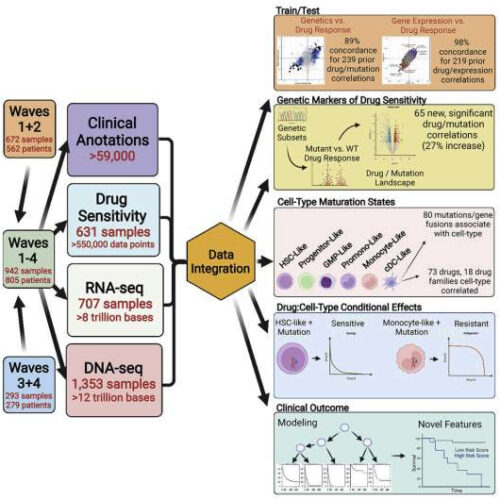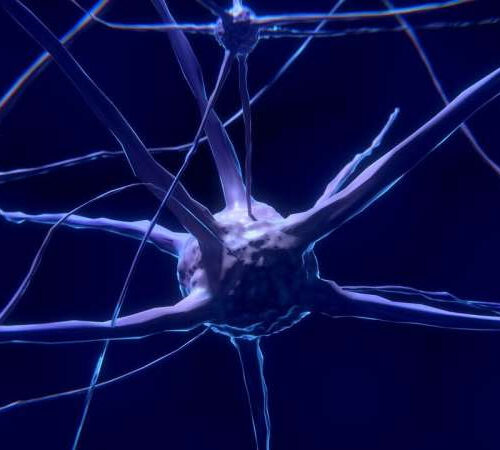Maya Davis August 09, 2022 Taking notes from blockbusters such as Outbreak and World War Z, viruses are typically seen as harmful agents to be wary of. But scientists have found they may be the key to helping the millions of people living with inflammatory bowel disease, or IBD. New research from the Weizmann Institute of Science has shown that bacteriophages...
Forever 16: America’s teens succumbing to deadly fentanyl
Makayla Cox, a high school student in the US state of Virginia, thought she was taking medication that her friend had procured to treat pain and anxiety. Instead, the pill she took two weeks after her sixteenth birthday was fentanyl, a synthetic opioid 50 times more potent than heroin. It killed her almost instantly. After watching...
Targeting impulsivity early in adolescence could prevent later behavioral disorders
by Annenberg Public Policy Center of the University of Pennsylvania Credit: Unsplash/CC0 Public Domain Tendencies toward impulsivity in early adolescence are linked with a variety of poor outcomes in later adolescence, including antisocial personality disorder and alcohol use disorder. However, by the time teenagers reach mid-adolescence, it may be too late to target impulsivity to...
Protein that detects light may play a role in the origin and progression of melanoma, study suggests
by Julia Moióli, FAPESP Researchers at the University of São Paulo showed, through experiments on animals and genetically modified cells, that this type of cancer advances more slowly when the light-sensitive molecule known as melanopsin is deactivated. The discovery could point to novel therapeutic strategies. Credit: Wikimedia Commons Melanopsin (OPN4) is a light-sensing protein found in...
A better roadmap for beating deadly leukemia
by Joe Rojas-Burke, Oregon Health & Science University Graphical abstract. Credit: Cancer Cell (2022). DOI: 10.1016/j.ccell.2022.07.002 Acute myeloid leukemia, or AML, is the most common acute blood cancer in adults—and one of the most difficult to treat. Scientists at Oregon Health & Science University have discovered a potential new target for stopping it: a gene that, when active,...
Dietary salt substitutes lower risk of heart attack, stroke and death
by British Medical Journal Credit: CC0 Public Domain Dietary salt substitutes lower the risk of heart attack, stroke, and death from all causes and cardiovascular disease, finds a pooled data analysis of the available evidence, published online in the journal Heart. The beneficial effects of these substitutes are likely to apply to people all around the world,...
AI + ECG heart trace can accurately predict diabetes and pre-diabetes
by British Medical Journal Credit: CC0 Public Domain An artificial intelligence (AI) algorithm, derived from the features of individual heartbeats recorded on an ECG (electrocardiogram), can accurately predict diabetes and pre-diabetes, suggests preliminary research published in the online journal BMJ Innovations. If validated in larger studies, the approach could be used to screen for the disease in...
Vitamin D Supplements Cut Risk for Autoimmune Disease in VITAL
JoAnn E. Manson, MD, DrPH February 16, 2022 Hello. This is Dr JoAnn Manson, professor of medicine at Harvard Medical School and Brigham and Women’s Hospital. I’d like to talk about recent promising research from the vitamin D and omega-3 in the prevention of autoimmune diseases (VITAL) trial, recently published in The BMJ . We tested vitamin D 2000...
Study shows how microglia are prompted to change their state to adapt to different areas of the brain
by Harvard University Credit: CC0 Public Domain From everyday actions like walking and talking to feats of athletic or academic excellence, the brain is constantly acquiring and seamlessly processing information to produce these incredible behaviors. The process requires a whole orchestra of cells listening to each other and tuning their functions to harmonize together. One...
New Langya virus that may have spilled over from animals infects dozens
By Amy Cheng August 10, 2022 at 4:59 a.m. EDT An international team of scientists said the Langya virus, a new type of henipavirus, may have infected shrews before being transmitted to humans. (Erhard Nerger/Getty Images/ImageBroker RF)Listen3 minCommentAdd to your saved storiesSaveGift ArticleShare An international team of scientists identified a new virus that was likely to...






